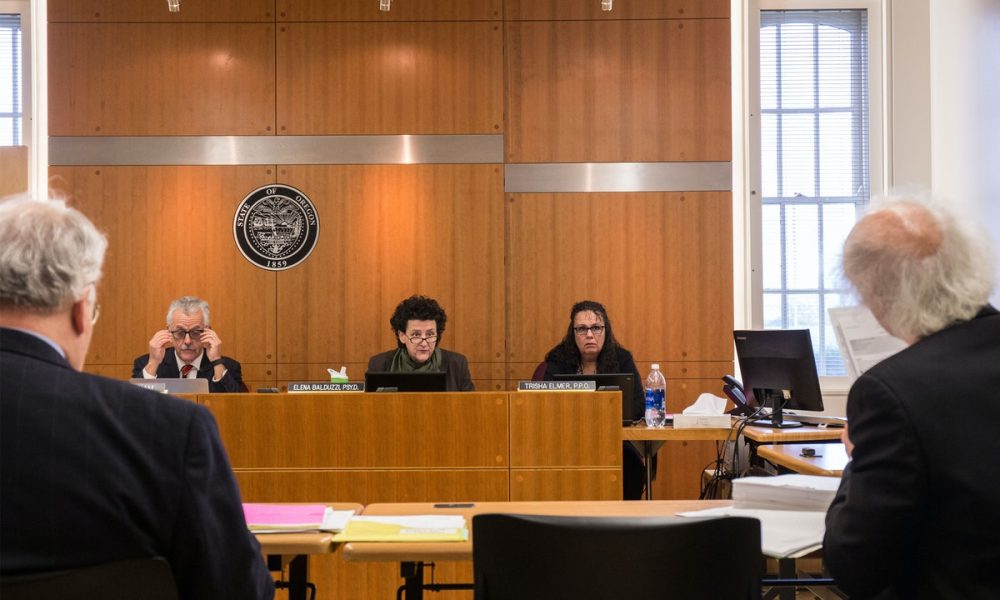
Reforming how the state protects Oregonians from the criminally insane needs the unwavering attention of Gov. Kate Brown, legislators and state agency officials. Since the Anthony Montwheeler case seized public attention nearly two years ago, precious little has changed. Our investigation into the dangers of the system should sink spurs deep into political hides to get them moving.
In Oregon, those found guilty except for insanity don’t go to prison but instead get put in the charge of the state Psychiatric Security Review Board. The board manages the criminally insane with hospitalization and community treatment. The five-person board also sets those free who are no longer considered a danger, don’t have a qualifying mental illness, or who have hit the time limit set by state law.
If you listened to the state board, you might conclude it is one of the most effective agencies in Oregon. On its website, it tells the public: ‘The board has an exceptional record of reintegrating clients into the community with a 6 year average 0.46% adult recidivism rate.” Put in plain English, the board’s declaration is claiming that virtually none of the people it puts back into Oregon communities ever commits a crime again.
An essential fact is missing, however. The board’s statistic is for the conduct of people who are placed in communities – but remain under the state’s control. The number doesn’t track the record of the hundreds of criminally insane “reintegrated” into society with no board control. Montwheeler, the accused murderer, fits into that latter category.
Jayme Fraser, reporter for the Malheur Enterprise working in conjunction with ProPublica, spent months documenting the criminal conduct of those the state board releases. She found that roughly one out of three of those turned free by the board commit new crimes. This is substantially higher recidivism rate than the board represents.
Psychiatric Security Review Board officials didn’t dispute the findings, but justified their conduct in overlooking the Montwheelers of the system. Tracking people after they are free from the board isn’t our job, one explanation went. Board officials said they didn’t have the resources. They said they would get to the chore of examining that conduct another day.
Only belatedly did the board admit it had been pondering this issue for more than two years, but never bothered to say so as the Montwheeler case erupted, and in months of conversations and emails with Fraser. She discovered that the board’s then-executive director in January 2016 internally signaled the need to study the criminally insane turned loose in Oregon.
That revelation came after Alison Bort, who became as executive director earlier this year, said in June, “We don’t have post-jurisdiction data. That’s data we really don’t have.” The board’s internal records showed that wasn’t true. Eight months before Bort’s statement, the board had in fact calculated “post-jurisdiction data” showing recidivism as high as 53 percent. There is no indication the board reacted to this finding with anything more than deliberate scholarly curiosity.
The agency’s shoulder shrug to this public safety concern is alarming. The excuse that it’s not technically responsible for tracking those it releases into society is insulting. That’s like driving past a burning house and deciding not to call in the alarm because you’re not a firefighter.
Well, the alarm is sounding and it should not matter if the Psychiatric Security Review Board wants to roll over and sleep through it. Other state officials need to respond and immediately.
There is no question that dealing with the criminally insane is enormously challenging. Prison isn’t where they belong. And locking them up forever in a state hospital isn’t the answer either. But perhaps there is an answer in the board’s own claim. If the criminally insane can be so successfully managed in public with state controls, state officials should explore what are the traits of that system. Can the system be reformed to apply those features in a new way to those released now with no state supervision? Public safety demands that we try something new.
The governor and legislators can’t assign this mission to the Psychiatric Security Review Board. This agency has shown itself too focused on safeguarding its reputation and too little interested in the stunning recidivism of those it frees. An honest assessment of that impact followed by meaningful changes is what Oregonians deserve.
– LZ




